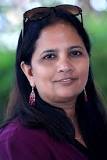Keynote Speaker
Peace Research from within Peace Practice: Discovering the Untapped Potential of Reflective Practice for Research Innovation
Many peace and conflict researchers interested in applied practice struggle to find time and resources to carry out field-based practice. Many practitioners interested in peace and conflict research, on the other hand, struggle to create opportunities to turn their field experiences into publishable research outputs. The goal of my inquiry is to fill these gaps. It will demonstrate how reflective practice can make empirical research rigorous and innovative and how the two sets of activities can come together more organically than may be conventionally thought. To these ends, this study will first identify different types of artifacts (such as conflict timelines and mappings) as well as definable units of ideas (such as conflict episodes and resolution options) that can come about as either intended products or unintended byproducts of peacebuilding and conflict resolution activities. The types of activities under consideration include mediation, problem-solving workshops, reconciliation dialogues, and conflict resolution trainings. The study will then explore how to use these artifacts and outputs as research data and make a theory-building exercise rigorous and innovative. Illustrative examples of such an exercise include a comparative analysis of Taiwanese and Chinese timelines of cross-Strait relations produced by problem-solving workshop participants from the two sides; a theatrical enactment of former Boko Haram members’ reentry into communities and the community leaders’ reactions to the enactment; a comparison of conflict experiences Syrian humanitarian professionals have presented in their conflict resolution trainings to develop participant-led case studies. These case studies will illustrate how reflective practice can surface the deep-seated needs and patterns of thinking on the part of previously excluded parties as well as actors coping with the destructive aspects of globalization. Drawing upon the insights from action research and multi-track peacemaking, this study will reveal the untapped potential of reflective practice as an underutilized resource for research innovation. By so doing, the study will demonstrate how to conduct research from within practice. It will also demonstrate how to bring research and practice closer together to maximize their combined impact for peace.
Bio

Dr. Tatsushi (Tats) Arai is an Associate Professor of Peace and Conflict Studies at Kent State University, USA. His research focuses broadly on conflict resolution, peacebuilding, and multitrack diplomacy with an emphasis on solution-oriented thinking and long-term systemic change. His publications include Creativity and Conflict Resolution (Routledge) and Contested Memories and Reconciliation Challenges (Woodrow Wilson International Center for Scholars, with S. Goto and Z. Wang as co-editors). Dr Arai’s recent articles in the Peace and Conflict Studies journal explore a Burmese Buddhist worldview and method of conflict resolution (2015, 2017) and community-based psychosocial healing in Rwanda (2019). As a conflict resolution trainer, mediator, and adviser with over two decades of practitioner experience across Asia, sub-Saharan Africa, and the Middle East, Dr Arai has previously served as a United Nations Senior Mediation Advisor on a when-actually-employed basis. He has also worked extensively with NGOs, community-based organizations, government agencies, and international organizations. Dr Arai is a Japanese citizen and lives with his tri-national family in Cleveland, Ohio. Website: https://works.bepress.com/tatsushi_arai/

